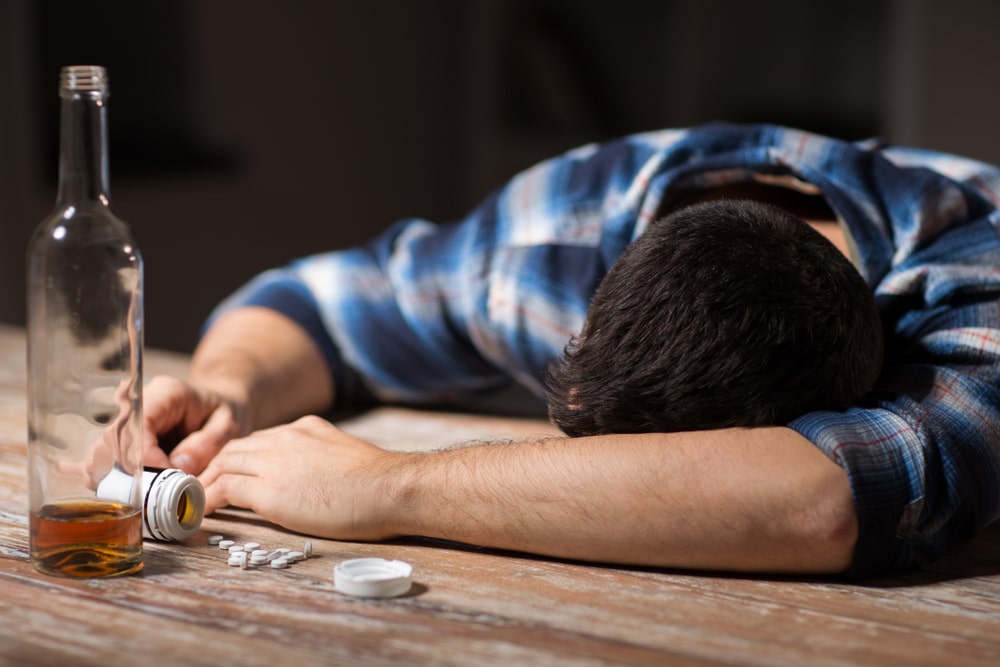A glass of wine or beer during a social gathering might ease tension and bring people closer. However, when drinking becomes an unbreakable habit that disrupts your life, that glass may transform from a companion into a lurking danger. In medical terms, this is known as alcohol use disorder (AUD), a condition characterized by patterns like binge drinking or needing more alcohol over time to achieve the same effects.
What’s even more troubling is the strong link between alcohol and depression. If you’re grappling with mental health issues such as depression, anxiety, or bipolar disorder, you might find yourself more vulnerable to alcohol’s grip. This dual struggle can complicate daily life and deepen emotional turmoil.
How Depression and Alcohol Become Entangled
Statistics reveal that about one-third of individuals with major depression also contend with alcohol use disorder. Often, depression takes the lead, setting the stage for alcohol issues. Studies show that children who experience depression are more prone to drinking problems years later. Teens who’ve faced severe depression are twice as likely to start drinking compared to their peers. Early drinking, especially binge drinking, significantly raises the risk of developing alcohol use disorder.
Gender plays a role too. Women with a history of depression are more than twice as likely as men to turn to heavy drinking, possibly because they’re more inclined to seek solace in alcohol during low moments.
Yet, alcohol offers no real relief—it only aggravates depression. Those who are depressed and drink excessively tend to face more frequent and intense depressive episodes, sometimes even contemplating suicide. Heavy drinking can also reduce the effectiveness of antidepressants, making recovery harder.
Beyond mental health, other factors heighten the risk of alcohol use disorder:
- Social Environment: Regular drinking by friends or partners can subtly increase your risk, especially for younger individuals influenced by parents or peers.
- Past Trauma: Emotional or physical wounds from childhood can make alcohol misuse more likely.
- Genetics: A family history of alcohol problems raises your odds, possibly tied to inherited traits.
- Weight Loss Surgery: Evidence suggests that procedures like gastric bypass may elevate the risk of alcohol issues.
How Alcohol Sparks Depression
Excessive drinking often clouds judgment, leading to rash choices. You might overspend, lose a job, or strain relationships while intoxicated. When these consequences pile up, depression can creep in—especially if your family has a history of depression.
Alcohol acts as a depressant, slowing down your central nervous system, which includes your brain and spinal cord. Initially, it might feel energizing, but as it builds up, drowsiness sets in, and self-control slips away. Over time, heavy drinking can harm your brain, triggering or worsening depression.
The Deeper Causes
The relationship between alcohol and depression isn’t straightforward. Twin studies reveal that the same factors driving family alcoholism often overlap with depression risk. Researchers have identified a gene linked to brain functions like memory and focus, where variations may heighten susceptibility to both alcohol misuse and depression.
Environment matters too. Children who faced abuse or grew up in poverty seem more prone to both conditions. Social pressures, family dynamics, and personal history weave a complex web around alcohol and depression.
Breaking Free from the Alcohol-Depression Cycle
An occasional drink might not harm you, unless a health condition forbids it. But if alcohol becomes your daily crutch or damages your relationships, work, or emotions, you’re likely facing a bigger issue.
Alcohol misuse and depression are serious and shouldn’t be ignored. If you suspect a problem, consult a doctor or therapist. Treatments for depression are well-established, and medications exist to curb alcohol cravings and reduce the urge to drink heavily. Typically, professionals address both conditions together for the best outcome. Support from groups like Alcoholics Anonymous or a local alcohol treatment center can also make a difference.
Final Thoughts
If you’re battling mental health challenges like depression, your risk of alcohol use disorder climbs. This harmful drinking pattern persists despite its consequences, ranging from drinking more than intended to struggling to cut back or quit, even when it wrecks your life. If you or loved ones are concerned about your drinking, reach out to a professional for tailored treatment options.
Frequently Asked Questions
Does alcohol make you feel depressed? As a nervous system depressant, long-term heavy drinking can lead to depressive symptoms.
Does alcohol worsen anxiety? Yes, alcohol triggers brain chemical shifts that can heighten anxiety and depression.
How does alcohol affect emotions? It disrupts the brain’s inhibition control, offering brief calm before sparking negative emotions.
Why do you feel bad after drinking? Prolonged drinking depletes neurotransmitters that ward off negative feelings, potentially deepening reliance on alcohol.











